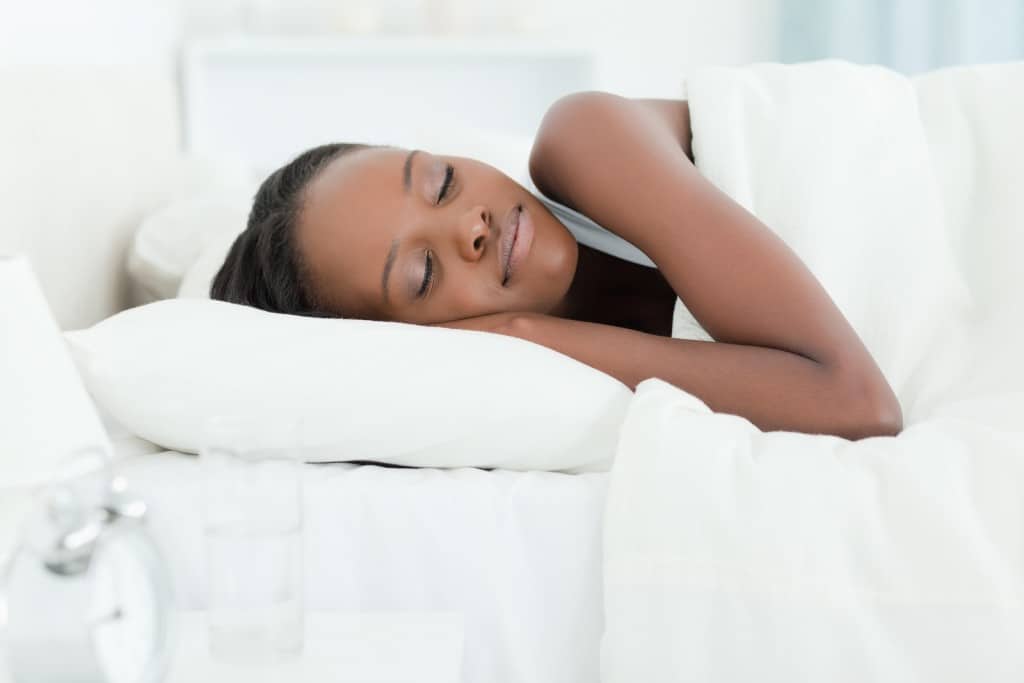Let’s talk about sex, bay-bee.
Your sleep can affect your sex life. Here’s how:
Testosterone plays a key role in a person’s sex drive (especially men), which is why not getting enough sleep can have profoundly negative effects on the libido, considering it lowers testosterone. [source]
Okay, so let’s talk about testosterone.
Both sexes have it. And it isn’t the only contributor to your sex drive, but it can most certainly affect your sex drive if you’re running low on it.
And, if you’re running low on it, things like erectile dysfunction and irritability become big deals.
We discussed this before, remember?
[R]esearchers found that women who, on average, got more sleep reported better genital arousal and vaginal lubrication versus women with lower average sleep duration. As many ladies know, vaginal lubrication is a key component to pleasurable, pain-free sex (wetter is definitely better). [source]
Mercy, mercy, mercy me. Lots of things affect vaginal lubrication – hormones, included; hormones that are plentiful in times like pregnancy or general ovulation, and hormones that are reduced in presence during times like menopause – that are natural components of life, too. Or, hell – sometimes you’re ready before your body is.
My point in bringing this up is, whether it be working through a sleep issue, or surviving menopause, don’t feel embarrassed by needing a good lubricant to get things going at home with your partner. If men can use Viagra with no shame, you can get you a little bottle of Astroglide and keep everyone happy….most importantly, yourself.
In 2009 researchers highlighted this link when they asked 401 men who supposedly had sleep apnea—a sleep disorder which causes short pauses in breathing and fragmented sleep—to come in for testing. Of those who were diagnosed with the disorder, 70 percent also had erectile disfunction, leading researchers to believe they were connected. [source]
So, what’s sleep apnea?
Sleep apnea is a serious sleep disorder that occurs when a person’s breathing is interrupted during sleep. People with untreated sleep apnea stop breathing repeatedly during their sleep, sometimes hundreds of times. This means the brain — and the rest of the body — may not get enough oxygen.
There are two types of sleep apnea:
- Obstructive sleep apnea (OSA): The more common of the two forms of apnea, it is caused by a blockage of the airway, usually when the soft tissue in the back of the throat collapses during sleep.
- Central sleep apnea: Unlike OSA, the airway is not blocked, but the brain fails to signal the muscles to breathe, due to instability in the respiratory control center. [source]
So, about that obstructive sleep apnea for a second. When it comes to people who are overweight, the likelihood that you have breasts that are proportionately larger than your body, excess body fat around your neck, shoulder and upper chest area, it tends to slide back onto the throat, thereby pressing on your airway, preventing your body from breathing according to its natural rhythm, and reducing the oxygen your brain gets in rest.
Sleep apnea can be greatly affected in your favor through fat loss.
A 2011 study published in the Journal of Sexual Medicine found that women with sleep apnea were more likely to have sexual distress (i.e. sexually-related personal distress) and more likely to report sexual dysfunction than the general female population. FYI: More than 18 million Americans suffer from sleep apnea, which doesn’t include the millions more who may have it and don’t know it, thinking they just “can’t sleep.” [source]
How would you know if you have sleep apnea? Something like obstructive sleep apnea is most common in people who are overweight, so if you’ve slept for long hours and still feel unrested, sleep apnea likely can contribute to why you feel that way. Of course talk to your doctor, but also know that sleep apnea is greatly helped through fat loss.
[R]esearchers found that sleep deprivation seemed to actually cause psychological distress. After analyzing 20,822 young adults they found that those who were short sleepers were more likely to report psychological distress from the lack of sleep and, for some, it turned into full-blown depression. [source]
It should also be noted that sleep apnea can contribute to depression, because brain cells need oxygen to function, and a reduction in the amount of oxygen the brain expects to get can adversely affect the brain’s ability to do its many jobs, one of which being regulating functions related to mood and emotion.
Obviously, this is about more than sex – this is also about the value of sleep and how limiting your sleep limits your ability to prosper in multiple ways. Take your sleep seriously! Go to bed.
I’m actually about to go right now. #babysprout demands rest!
